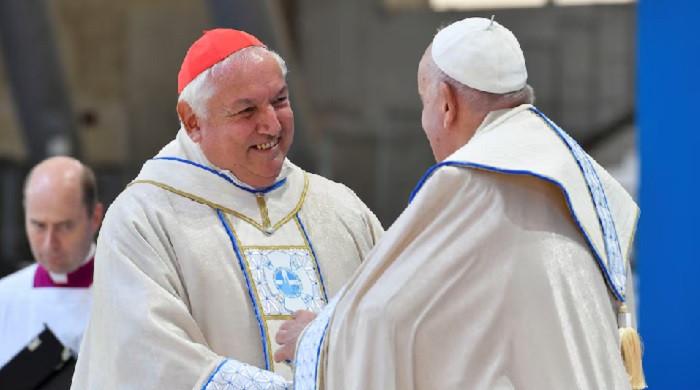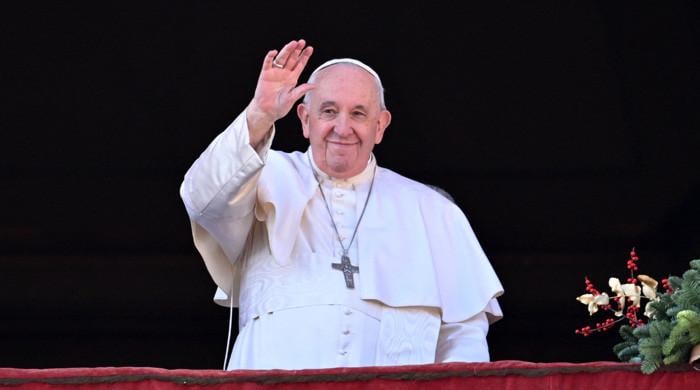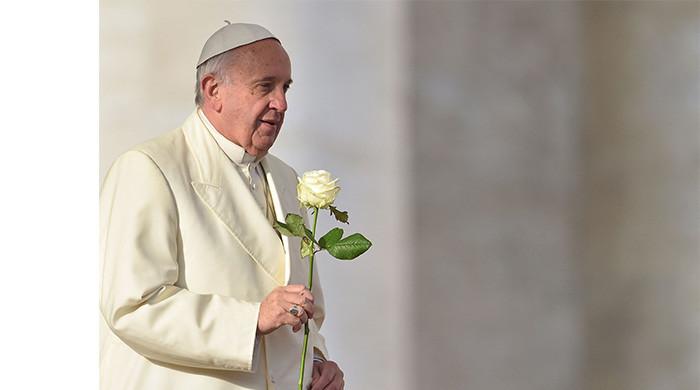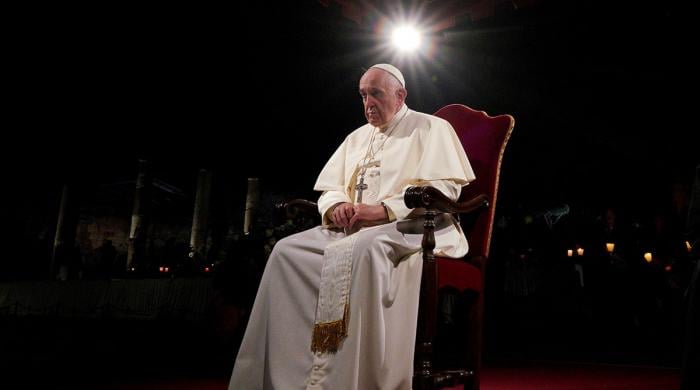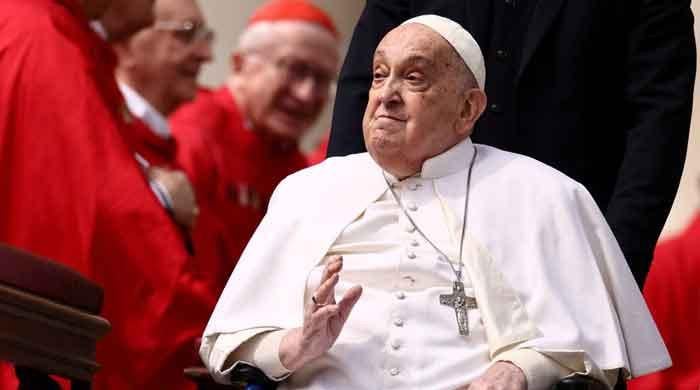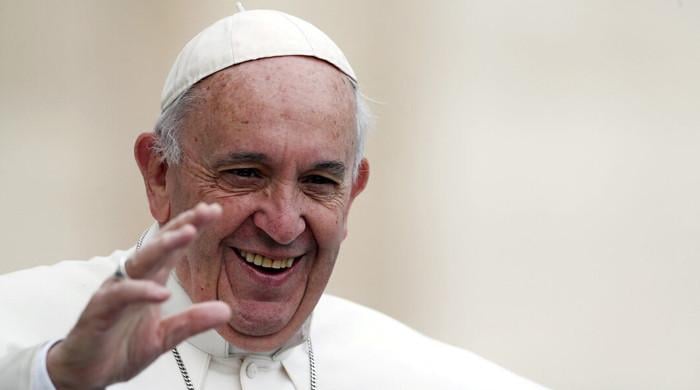A timeline of the Daniel Pearl case
Senior journalist Mazhar Abbas, who has been following the case, lists down the chronology of events
January 29, 2021
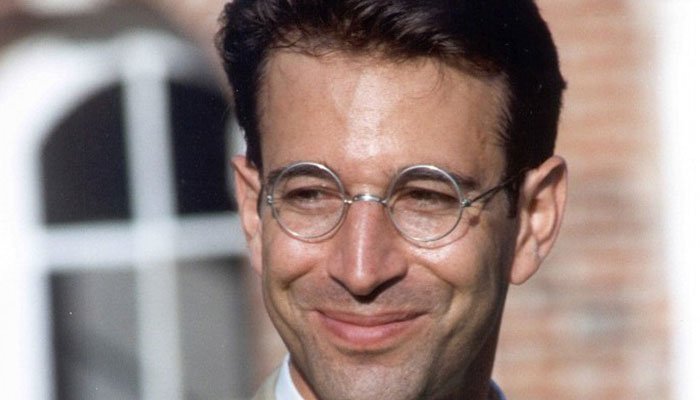
KARACHI: Senior journalist Mazhar Abbas, who has been following the kidnapping and murder of Daniel Pearl since 2002, lists down the chronology of events after the journalists went missing:
2002
January 23 – Daniel Pearl, an American journalist, goes missing in Karachi after he sets off to meet a little-known militant leader, Mubarak Shah Gilani.
January 27 - The US-based publication Wall Street Journal (WSJ) receives an e-mail from an unknown group, which calls itself the National Movement for Restoration of Pakistan's Sovereignty. The group emails a picture of Pearl with a gun pointed to his head and demands the release of militants belonging to the Taliban and other Pakistani terror outfits.
January 30 - The WSJ is emailed a new image of Pearl. This time the group threatens to kill the journalist if their demands are not met within 24 hours.
February 5 – The British Pakistan, Sheikh Omar, hands himself over to authorities in Lahore, which is reportedly confirmed by his uncle, a district court judge.
February 11 – The police in Karachi arrest Salman Saqib, Adil Sheikh and Fahad Nasim. The men are believed to have sent the emails to WSJ from a local cyber café.
February 12 – Police announce the arrest of Sheikh Omar in Lahore and fly him to Karachi.
February 14 - Authorities produce Omar in an Anti-Terrorism Court in Karachi, where he makes a startling statement: “As far as I know, Pearl is already dead.”
February 21 - A video-tape is delivered to the US consulate in Karachi. It shows Pearl’s last moments, before he is beheaded. Thereafter, a search is launched for the body.
March 1-10 - All four accused are produced in court. Three of the men confess to sending the emails to WSJ, while a taxi driver, also brought to court, identifies Omar as the man he saw meeting Pearl on Jan. 23.
March 22 - Police lay formal charges against the four men for kidnapping, murder and terrorism. Authorities also name seven other men in connection to the crime and declared them absconders.
April 22 - The trial begins in the ATC and is presided over by judge Abdul Ghafoor Memon.
April 25 - Memon is replaced by judge Ashraf Ali Khan.
April 30 – The Sindh High Court orders that the trial be relocated to the Hyderabad Prison from Karachi.
May 3 - The trial resumes in Hyderabad. The defense refuses to attend the hearing and files a petition in the Supreme Court against the change in venue.
May 9 - The Supreme Court dismisses the plea of the defense.
May 11 – The US Federal Bureau of Investigation’s (FBI) computer expert provides evidence regarding the email in court.
May 14 - The video of the slaying is shown in court.
May 16 – A second FBI agent testifies on the authenticity of the murder video.
May 17 - Pakistan police find remains believed to be that of Pearl's, in a grave on the outskirts of Karachi.
June 21 - Omar testifies for the first time. He denied all charges and calls the prosecution’s case a “tissues of lies”.
June 22 - Saqib, Adil and Nasim reject all charges against them. This time they deny sending the email.
June 27 – Two witnesses, presented by the defense team, appear in court. One witness is Omar’s uncle Sheikh Rauf, who tells the judge that he was with Omar, when he surrendered on Feb 5, a week before the police claim to have arrested him.
July 1 – The second defense witness is Omar's father, Sheikh Ahmad Saeed. He says that his son has no link to al-Qaeda's chief Osama bin Laden.
July 10 - The three-month trial concludes with the prosecution and defense lawyers completing their arguments. Judge Syed Ashraf Ali Shah reserves the verdict.
July 15 – The verdict is announced in the Hyderabad Central Prison. Sheikh Omar is sentenced to death for kidnapping and murder, while the other three are given life imprisonment. They were also fined and ordered to pay Rs500,000 to Pearl's widow.
July 17 - All four convicts file an appeal in the Sindh High Court.
Also read: The life story of Omar Saeed Sheikh reads like something out of a spy novel
2020
March 3-6 – The Sindh High Court (SHC) division bench hears the case on day-to-day basis after an 18 year gap.
In the past 18 years, the case was adjourned numerous times and at one point lawyers of either side stopped coming to court, according to lawyer, Khawaja Naveed.
April 2 - The SHC announces the judgement. It commutes the death sentence of Omar to seven years, only on charges of kidnapping, and upholds the appeal of the other three and orders their release, if they are not required in any other case.
April 3 - The Sindh Home Department places all four under detention under the Maintenance of Public Order (MPO) and the Sindh government announces that it will file an appeal against the verdict in the Supreme Court.
The US criticizes the judgement, while Pakistan's Foreign Minister Shah Mehmood Qureshi expresses concern over the timing of the verdict.
2021
January 28 - The Supreme Court upheld the Sindh High Court’s decision and ordered the release of the four men convicted of kidnapping and murdering Daniel Pearl.





